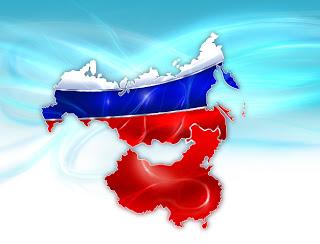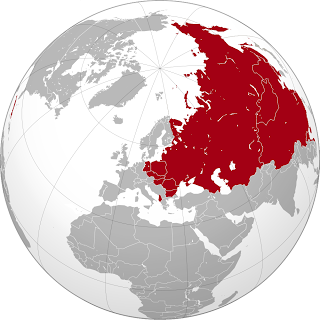 The fifth summit of the BRICS, held in Durban last month, mightgo down in historyas the birthplace of a multipolar world order in place of US “imperfect unipolarism.” In an interview to the ITAR-TASS news agency ahead of the summit, Russian President Vladimir Putin had already described the group as “a key element of the emerging multipolar world,”explaining that its members “advocate the creation of a more balanced and just system of global economic relations.” Although the decision to establish a BRICS-led development bank was certainly the brightest outcome of the summit, its main political note was the rise of Sinorussia as a new regional bloc decided to challenge the global status quo.
Beijing and Moscow are by far the geopolitically strongest powers of the club’s five members. With a combined population of almost one billion and half people over an area of 26,805,203 km2, equal to roughly 18% of the world’s land area, the People’s Republic of China and the Russian Federation form together a formidable regional actor capableof dominatingEurasia and projecting its influence over the entire globe. Hence the interest in improving bilateral relations already expressed before Durban by both Putin and his Chinese counterpart Xi Jinping, during this latter’s visit to Moscow as new head of state of the Asian giant.
The visit, welcomed as “historic” by Putin, gave China National Petroleum Corporation the opportunity to sign a deal with the Russian state oil company Rosneft on the increase of Russia’s oil supplies to China to 50 million tonnes a year from the current 15 million, in exchange of a $2 billion 25-year loan. The two companies agreed as well on the jointly development of three offshore blocks in the Barents Sea and eight onshore deposits in East Siberia, providing the Sino-Russian partnership with an increasing strategic shape.
SINORUSSIA BEFORE THE 1960 SINO-SOVIET SPLIT
The fifth summit of the BRICS, held in Durban last month, mightgo down in historyas the birthplace of a multipolar world order in place of US “imperfect unipolarism.” In an interview to the ITAR-TASS news agency ahead of the summit, Russian President Vladimir Putin had already described the group as “a key element of the emerging multipolar world,”explaining that its members “advocate the creation of a more balanced and just system of global economic relations.” Although the decision to establish a BRICS-led development bank was certainly the brightest outcome of the summit, its main political note was the rise of Sinorussia as a new regional bloc decided to challenge the global status quo.
Beijing and Moscow are by far the geopolitically strongest powers of the club’s five members. With a combined population of almost one billion and half people over an area of 26,805,203 km2, equal to roughly 18% of the world’s land area, the People’s Republic of China and the Russian Federation form together a formidable regional actor capableof dominatingEurasia and projecting its influence over the entire globe. Hence the interest in improving bilateral relations already expressed before Durban by both Putin and his Chinese counterpart Xi Jinping, during this latter’s visit to Moscow as new head of state of the Asian giant.
The visit, welcomed as “historic” by Putin, gave China National Petroleum Corporation the opportunity to sign a deal with the Russian state oil company Rosneft on the increase of Russia’s oil supplies to China to 50 million tonnes a year from the current 15 million, in exchange of a $2 billion 25-year loan. The two companies agreed as well on the jointly development of three offshore blocks in the Barents Sea and eight onshore deposits in East Siberia, providing the Sino-Russian partnership with an increasing strategic shape.
SINORUSSIA BEFORE THE 1960 SINO-SOVIET SPLIT
 Actually , Sinorussia is the revival of the 1950s Sino-Soviet alliance through which Beijing and Moscow had already tried, without success, to counter US expansion in Eurasia, and whose failure casts a shadow on joint efforts by Putin and Xi to establish a real strategic partnership. At that time, China and Soviet Russia were united by a common political ideology, Marxism-Leninism, which had to make the “brotherly solidarity” between the two countries “unbreakable” and “eternal.” Nevertheless, historical rivalry between Beijing and Moscow eventually prevailed, leading the two communist powers to break their alliance in 1960 and engage an open geopolitical confrontation that culminated in the 1969 Sino-Soviet border conflict for control of a group of disputed islands on the Ussuri River.
In the last two decades, substantially all territorial disputes have been peacefully resolved through a series of demarcation agreements between the Chinese and post-Soviet Russian leaderships, but new problems have arisen as a consequence of the increasing demographic imbalance between the two sides of the border. Illegal labor migration of Chinese citizens, smuggling and illegal fishing by Chinese citizens in Russia are among the issues arising from the depopulation of Siberia, although the risk of a peaceful, demographic conquest of the region by China is Russia’s real but unmentionable reason of fear towards its always more powerful neighbor.
Nevertheless, the path taken by Putin’s Russia and Xi’s China seems to be based on a tacit division of the world into spheres of influence between the two powers, where Moscow recognizes Chinese influence in Africa and the Pacific in exchange of Beijing’s recognition of Russian primacy on the Eurasian mainland, Middle East included. Therefore, despite the significant economic growth of BRICS countries such as Brazil, India and South Africa, the future shape of the world will be likely decided by the fusion/clash of the dominant Euro-American establishment with the new Sino-Russian alliance.
Actually , Sinorussia is the revival of the 1950s Sino-Soviet alliance through which Beijing and Moscow had already tried, without success, to counter US expansion in Eurasia, and whose failure casts a shadow on joint efforts by Putin and Xi to establish a real strategic partnership. At that time, China and Soviet Russia were united by a common political ideology, Marxism-Leninism, which had to make the “brotherly solidarity” between the two countries “unbreakable” and “eternal.” Nevertheless, historical rivalry between Beijing and Moscow eventually prevailed, leading the two communist powers to break their alliance in 1960 and engage an open geopolitical confrontation that culminated in the 1969 Sino-Soviet border conflict for control of a group of disputed islands on the Ussuri River.
In the last two decades, substantially all territorial disputes have been peacefully resolved through a series of demarcation agreements between the Chinese and post-Soviet Russian leaderships, but new problems have arisen as a consequence of the increasing demographic imbalance between the two sides of the border. Illegal labor migration of Chinese citizens, smuggling and illegal fishing by Chinese citizens in Russia are among the issues arising from the depopulation of Siberia, although the risk of a peaceful, demographic conquest of the region by China is Russia’s real but unmentionable reason of fear towards its always more powerful neighbor.
Nevertheless, the path taken by Putin’s Russia and Xi’s China seems to be based on a tacit division of the world into spheres of influence between the two powers, where Moscow recognizes Chinese influence in Africa and the Pacific in exchange of Beijing’s recognition of Russian primacy on the Eurasian mainland, Middle East included. Therefore, despite the significant economic growth of BRICS countries such as Brazil, India and South Africa, the future shape of the world will be likely decided by the fusion/clash of the dominant Euro-American establishment with the new Sino-Russian alliance.

